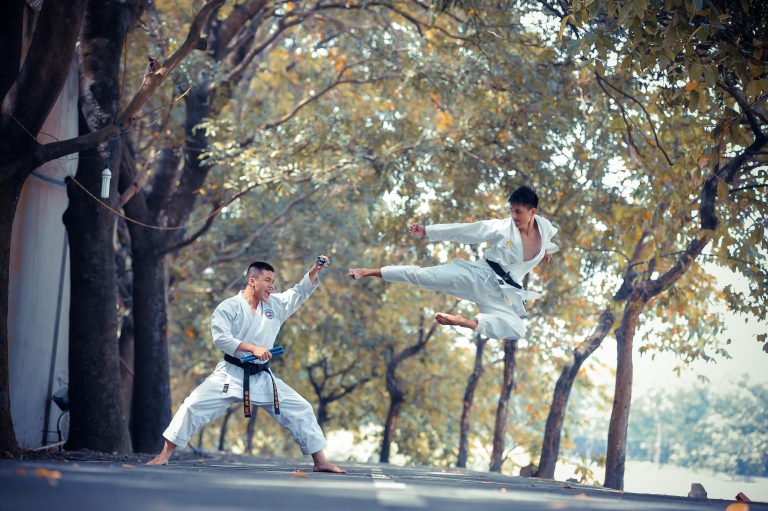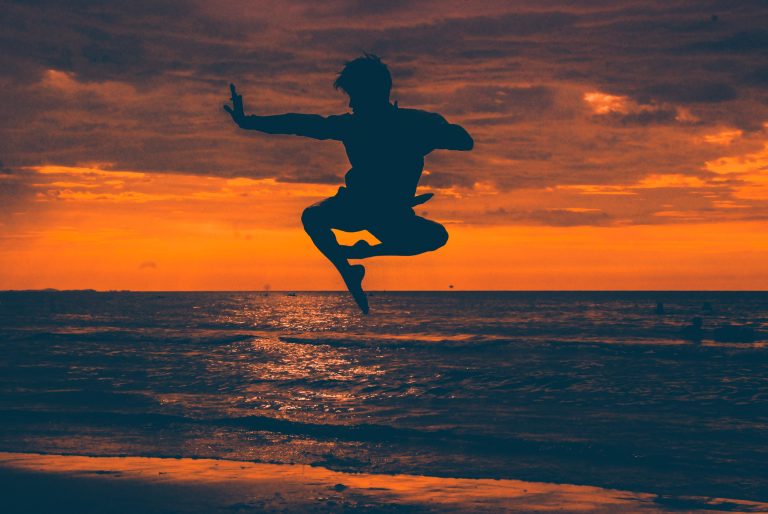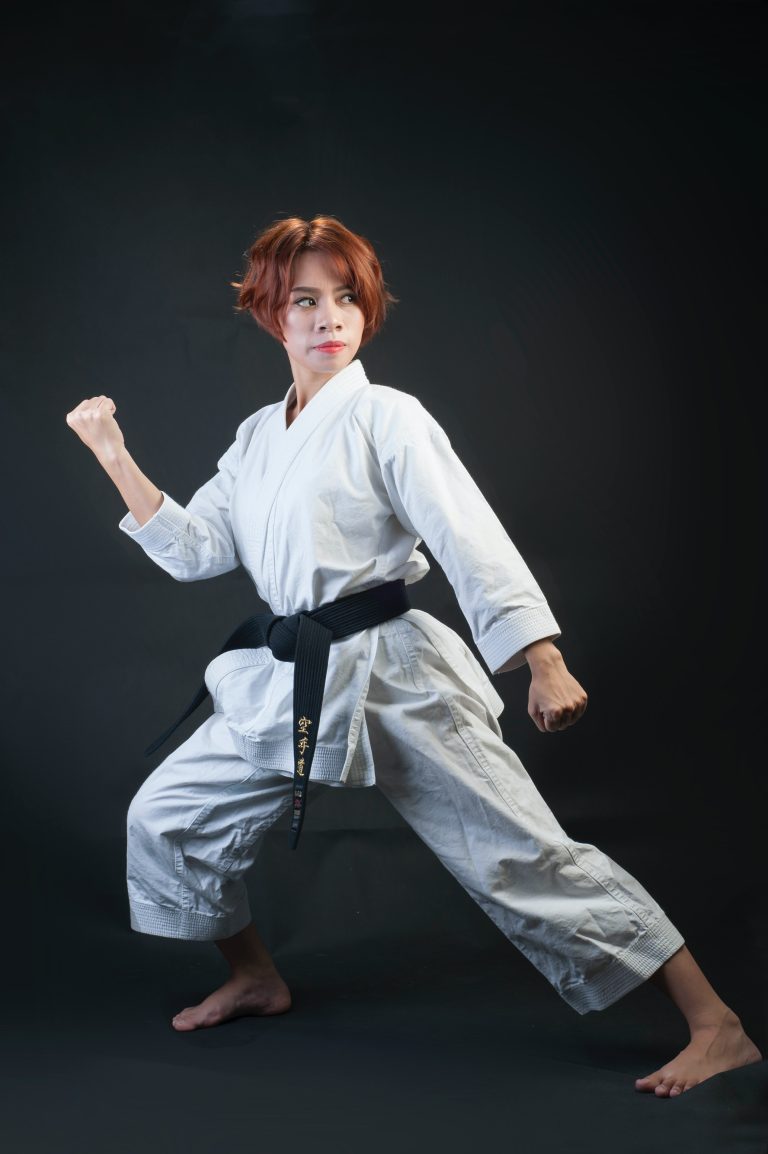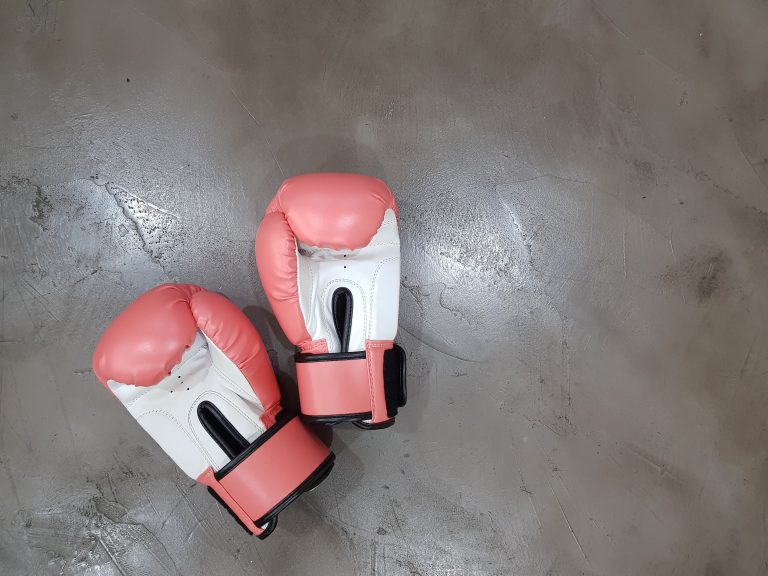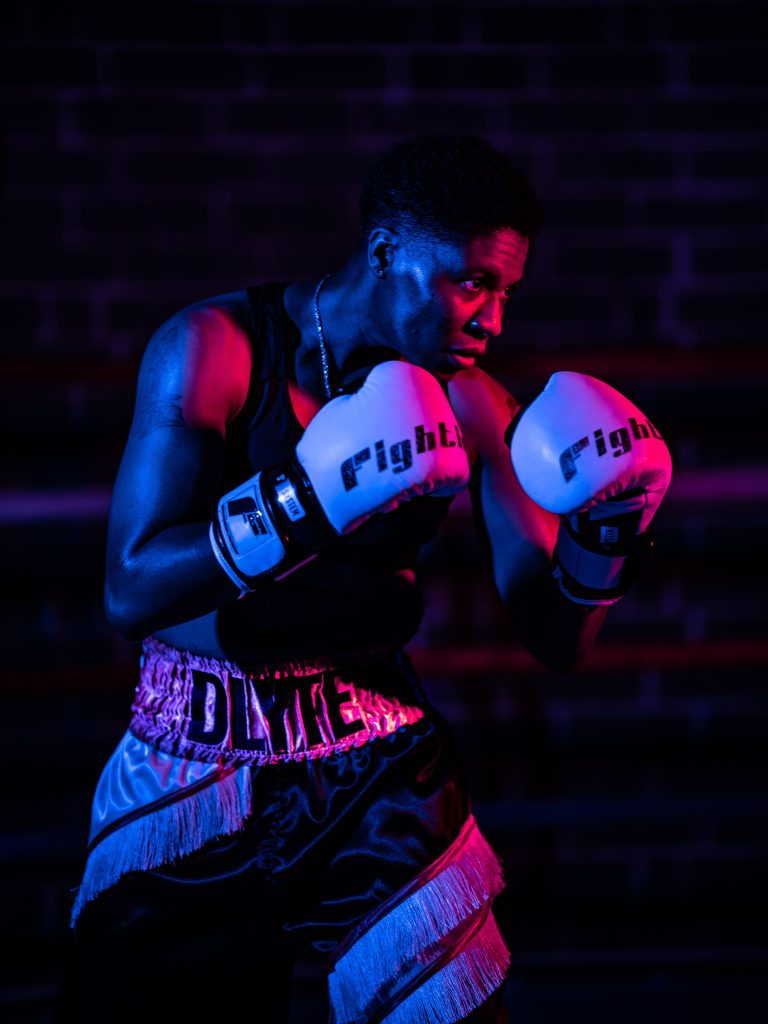Should You Train In Karate For Self-Defense?
Are you considering taking karate classes for self-defense? Karate is a popular martial art practiced all over the world for many reasons, including physical fitness, meditation, discipline, and self-defense. Many people practice karate for self-defense and there are many benefits to this. But, before deciding whether or not to invest your time and resources into karate for self-defense, it’s important to consider the drawbacks as well. In this blog post, we’ll look closer at the positives and negatives of training in karate to help you decide if it’s right for you.
What Is Karate?
Karate is a martial art form developed in Okinawa, Japan around the late 19th century. It focuses on strikes, blocks, kicks, and open-hand techniques such as joint locks, throws, and presses. Karate emphasizes self-defense, physical fitness and mental discipline. It is a striking art that includes punches, elbows and knees as well as a form of stand up grappling, and can be used effectively in self-defense.
Positive Aspects of Training in Karate For Self-Defense
1. Improved Awareness and Confidence
Training in karate can improve your awareness of your surroundings, making you more alert and giving you greater confidence in situations where you may feel threatened. Classes focus on stance and posture as well as awareness of your opponent which can foster a generally greater understanding of how to interact with people in a defensive manner.
2. Improved Physical Fitness
Karate can provide great physical benefits for anyone who takes part in the practice and classes. Training in karate will require endurance and strength, as well as engaging your core muscles to properly execute techniques. Regular practice of karate will improve reflexes and agility while fostering more balance and coordination in movement. Additionally, you’ll develop greater flexibility and be able to better defend yourself in close quarters.
3. Improved Mental Discipline
Karate classes focus not just on physical techniques, but on mental discipline as well. When you train in karate, you’ll be required to maintain a focus and determination in order to complete each technique with precision while also developing perseverance and stress management techniques. This can set students up with a better understanding of how to stay calm and alert in situations where they may feel threatened or overwhelmed.
Negative Aspects of Training in Karate For Self-Defense
1. Long Learning Curve
Karate relies heavily on technique, so learning it takes much longer than learning a martial art like Kickboxing or Muay Thai. This means it can take several years of dedication and practice to truly understand the basics and make them second nature so that you can use them in an actual combat situation. In addition, the principles of karate aren’t easily applicable to close range fighting without perfect technique, so it’s important to understand those principles fully before attempting to use them in self-defense.
2. Difficult To Practice Without Instructors
Karate is not easy to learn without instruction from experienced practitioners since its motions are complex, requiring detailed instructions in order to be properly performed. This means that even with consistent study of books or online tutorials, it may be difficult to translate what you learn at home into a direction that can be applied in a real life situation for effective self defense.
3. Limited Situational Applications
Karate is largely designed for one-on-one combat situations, which makes it less effective when faced with multiple attackers or opponents who have weapons (like guns). Although it’s possible to develop strategies for dealing with these situations from correct practice of karate techniques and principles, it is not as easy or effective as some other types of martial arts when faced with an extreme situation.
Should You Train In Karate For Self Defense?
Training in karate can be incredibly beneficial both physically and mentally – increased awareness and heightened confidence along with improved physical fitness and mental discipline are all perks of taking karate classes. However, it is important to remember that there are also some negatives to note when deciding whether or not to take up karate – including a long learning curve; difficulty practicing without instructors; and limited application of techniques when defending yourself from multiple assailants or those with weapons.
At the end of the day, it depends on your personal goals – if your main objective is physical fitness or mental discipline, then karate can be an excellent choice for you. But, if your main priority is self-defense, then you should explore additional martial art forms that may be better suited for defense applications such as Brazilian Jiu Jitsu or Systema Spetsnaz. Ultimately, whatever martial art style you choose should reflect what you hope to gain from it and should fit comfortably into your overall lifestyle.
Should You Train In Karate For Self-Defense?
Karate is a martial art that has been around for centuries. It is known for its striking techniques, including kicks, punches, and open-hand strikes, and is often used as a form of self-defense. If you are considering training in karate for self-defense, you likely have many questions. In this blog post, we answer some of the most frequently asked questions about training in karate for self-defense.
What is karate?
Karate is a Japanese martial art that was developed on the island of Okinawa in the late 19th century. It is known for its powerful striking techniques, including kicks, punches, and open-hand strikes. Karate is also known for its emphasis on discipline, respect, and personal development.
Is karate effective for self-defense?
Yes, karate can be an effective form of self-defense. Many karate techniques are designed to be used in real-life situations, and trainees learn how to defend themselves against a variety of attacks, including grabs, strikes, and chokes. However, it is important to note that no martial art can guarantee success in a real-life self-defense situation, as every situation is different.
What are the benefits of training in karate for self-defense?
In addition to learning practical self-defense techniques, there are many other benefits to training in karate. Here are some of the most significant:
- Improved fitness: Karate is a physically demanding martial art that can improve your overall fitness and cardiovascular health.
- Increased confidence: Knowing that you can defend yourself can give you a confidence boost in all aspects of your life.
- Increased discipline: Karate training requires discipline and focus, which can translate into other areas of your life, such as work or school.
- Stress relief: Karate training can be a great way to relieve stress and promote mental relaxation.
What kind of karate should I train in for self-defense?
There are many different styles of karate, each with its own unique techniques and training methods. When it comes to self-defense, it is important to choose a style that emphasizes practical, real-life techniques. Some styles that may be well-suited to self-defense include Shotokan, Goju-Ryu, and Kyokushin.
How long does it take to become proficient in karate for self-defense?
The amount of time it takes to become proficient in karate for self-defense will vary depending on several factors, including how frequently you train and your natural ability. Generally speaking, it can take several years of consistent training to become proficient in karate for self-defense.
What should I look for in a karate school?
When choosing a karate school, there are several factors to consider. Here are a few things to look for:
- Qualified instructors: Look for a school with instructors who have years of experience and relevant certifications.
- A safe training environment: Make sure the school prioritizes safety and has a clean, well-maintained training area.
- A focus on practical self-defense: Look for a school that emphasizes real-life self-defense techniques.
- A supportive community: Look for a school that fosters a supportive, welcoming community of students and instructors.
Is karate suitable for everyone?
Karate can be a physically demanding martial art, and it may not be suitable for everyone. However, many karate schools offer classes for people of all ages and fitness levels, so it may be worth exploring your options. It is always important to consult with your doctor before starting any new exercise program.
Conclusion
Training in karate for self-defense can be a great way to improve your fitness, confidence, and self-defense abilities. However, it is important to choose a school that prioritizes practical self-defense techniques and offers a safe, supportive training environment. With consistent training, you can become proficient in karate and feel more prepared to defend yourself in real-life situations.
Inhaltsverzeichnis

